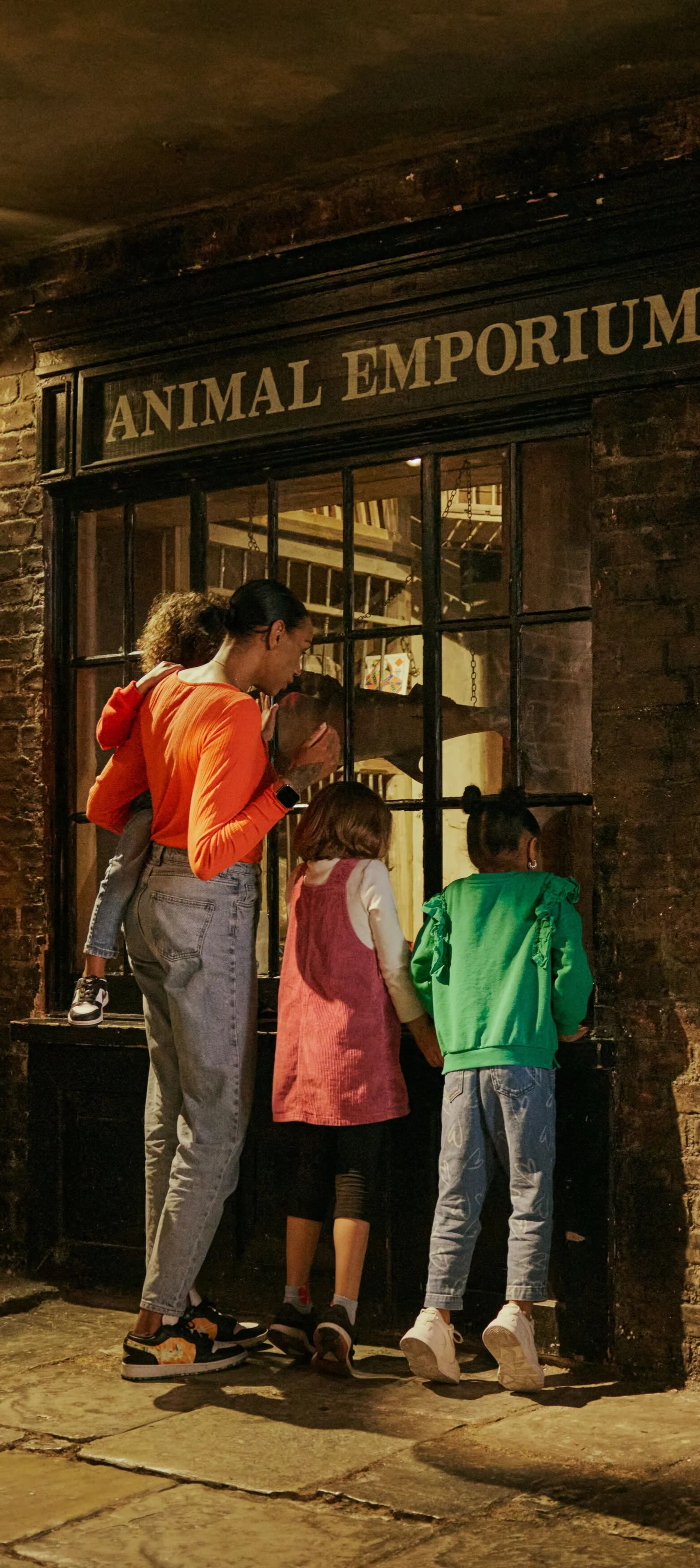Guidance for the re-use of London Museum information
London Museum's statement of public task.
This statement describes London Museum’s current public task for the purpose of the Re-Use of Public Sector Information Regulations 2005, the Re-Use of Public Sector Information (Amendment) Regulations 2015 and the EU PSI Directive 2013/37/EU (together “the Regulations”).
London Museum (“the Museum”) is the working name for the Board of Governors of the Museum of London. The functions and powers of the Board of are set out in the Museum of London Acts 1965 and 1986. It is the Museum’s public task:
- “To care for, preserve and add objects in their collections”
- “To secure that those objects are exhibited to the public and made available to persons seeking to inspect them in connection with study or research”
- “Generally to promote the understanding and/or appreciation of historic or contemporary London or of its society or culture, by means of its collections or such other means as it considers appropriate”
The Museum’s public task is reflected its strategic objectives.
Any documents which the Museum produces in furtherance of the above will be considered as falling within its public task. The subsequent use of such documents by the Museum for a purpose other than originally intended will still be considered to be use rather than re-use for the purpose of the Regulations as long as it lies within the Museum’s public task.
The Museum holds and uses documents primarily for, but not limited to, the following purposes within its public task:
- The promotion and provision of access to the Museum’s collections
- The production and promotion of exhibitions and gallery display
- The production of material relating to the care and preservation of its collection
- The production and publication of educational material in all forms
- The production and publication and sale of books and other informative material in all forms
- The production and sale of replicas, reproductions and souvenirs
- The licensing of rights to third parties for commercial and non-commercial use
For the avoidance of doubt the Museum’s trading subsidiary is independent of the Museum and wholly commercial in nature and does not therefore fall within the scope of the Regulations.
Where documents are used by the Museum’s trading subsidiary in furtherance of the Museum’s public task this will be considered to be use rather than re-use for the purpose of the Regulations, as will the use of documents provided to other third parties in furtherance of the Museum’s public task, such as use by the media or others to promote the museum and its collections.
Documents held as part of the Museum’s public task may, at the Museum’s discretion, be made available for re-use under the Regulations. It should be noted that giving permission for such re-use is not mandatory unless the document has already been re-used by the Museum or a third party for a similar purpose to that proposed by the requestor.
This statement is based on the Museum of London Acts 1965 and 1986 and will be reviewed if there are any substantive changes to these that impact on the Museum’s public task. If you have any queries on this public task statement you can submit them using the contact us form. If you have a complaint about how a request for re-use has been dealt with you can submit it using our complaints process – see below.
Making a request for re-use
Requests for re-use of Museum documents should be directed to the London Museum Picture Library on [email protected]. If you wish to make a request to re-use Museum documents, please provide the following information in writing:
- Your name and physical address for correspondence. If you are acting on behalf of a third party, please provide details of who this is.
- Details of the document you are requesting for re-use.
- Details of the purpose for which the document is to be re-used. The Museum reserves the right to refuse to allow re-use for purposes it considers to be unsuitable (see Appendix A).
After receiving your request for re-use the Museum will endeavour to respond within twenty working days of receipt but may extend this where documents requested are extensive or there are complex issues. If there are likely to be delays with making a decision then by the twentieth day after receipt of your request the Museum will contact you in writing to let you know:
Charges
Due to the range of requests charges for the supply and/or licensing of documents vary depending on the document and the nature of the re-use.
Notification of refusal
If your request for re-use of Museum documents is refused you will be informed in writing of the following:
Complaints and appeals procedure
If you have made a request for re-use of Museum documents under the Regulations and want to appeal the decision or make a complaint please follow this procedure.
- Set out in writing the grounds for your complaint and how you believe that the Museum has failed to comply with its obligations under the Regulations. Please send the complaint to the Museum using our contact us form on the website within twenty working days of receiving the notification of refusal for re-use.
- Please include in the appeal details of your original request together with your name, address and an email address if available.
- The Museum will aim to acknowledge your appeal within ten working days of receipt and will try to provide a substantive response to the appeal within twenty working days after that. On occasion it may take longer to resolve an appeal if it is complex and there is ambiguity over who is the owner of the intellectual property rights. If the appeal is likely to take longer to resolve the Museum will write to you with an estimate of the likely timescale for resolution.
Once a decision has been made the Museum write to you to let you know whether the appeal has been upheld or refused. Where an appeal has been refused you will be given the reasons for this.
Appendix A
Documents not available for re-use under the Regulations
(a) the Museums’ policies;
(b) the safety and security of the Collection or the Museum’s premises;
(c) the safety, security and privacy of any person;
(d) in the case of human remains held in the Collection, the principles set out in the Museum’s Human Remains Policy; and
(e) in the case of cultural property generally, the principles set out in Combating Illicit Trade: Due Diligence Guidelines for Museums, Libraries and Archives on Collecting and Borrowing Cultural Material (DCMS 2005)
(a) the Museums’ policies and values;
(b) the legality or otherwise of the proposed use;
(c) the potential for the proposed use to bring the Museum into disrepute;
(d) the potential for the reuse to be in connection with the promotion of extreme views or where the proposed reuse would be contrary to the principles of public decency or could cause offence.
(e) issues of cultural sensitivity; where the use is trivialising, sensationalising, de-contextualising or demeaning the subject matter
(f) suggesting the Museum endorses an organisation, or their re-use of the information
(g) misleading others or misrepresenting the subject matter or its source
Updated June 2024


